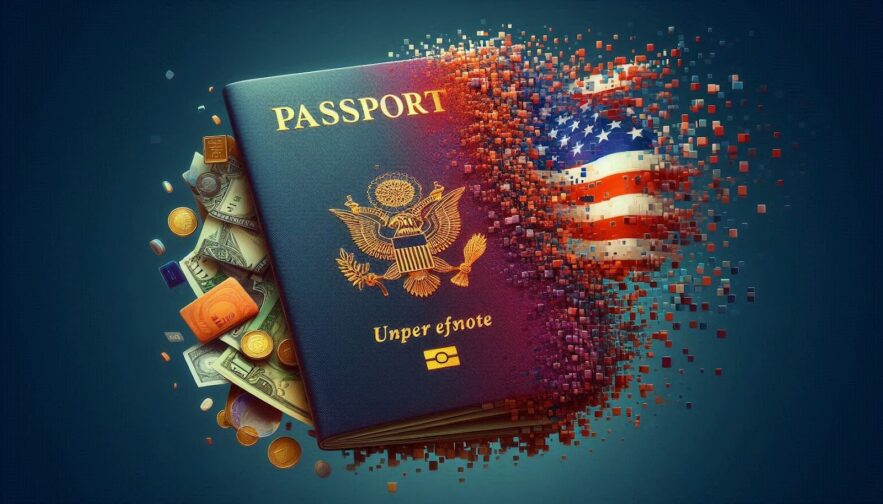Vancouver, Canada — In an era where political tensions, public health crises, and economic instability can shift international travel rules overnight, holding more than one passport is increasingly viewed as a legitimate and proactive measure to safeguard mobility, security, and personal freedom. For many individuals, the ability to move seamlessly between countries is no longer just a convenience; it is a core component of their life strategy. Multiple citizenships, when pursued and maintained legally, can provide a powerful tool for protecting both personal and professional interests.
Amicus International Consulting, a global advisory firm specializing in identity restructuring, second citizenship acquisition, and legal mobility frameworks, has seen a significant rise in demand from clients seeking lawful multi-passport strategies. This surge reflects a broader recognition that legal identity diversification is as essential as financial diversification in today’s unpredictable world.
A Growing Global Movement Toward Multi-Citizenship
While the concept of holding multiple citizenships has existed for centuries, historically it was often reserved for individuals who acquired it by birth or marriage. Today, changing laws, broader acceptance of dual and multiple nationality, and the rise of citizenship-by-investment (CBI) programs have made it possible for a much wider range of people to acquire an additional passport.
According to data from the Investment Migration Council, the number of countries offering structured investment routes to citizenship has grown by more than 40 percent in the last decade. Meanwhile, countries that previously prohibited multiple nationalities, such as Germany, are now softening restrictions in some instances.
Drivers behind this shift include:
- Travel disruptions caused by pandemics or geopolitical conflicts
- Uncertainty in home countries due to political instability or policy changes
- Increased global economic interdependence requires mobility for business
- Desire for access to better education, healthcare, and social services in alternative jurisdictions
The pandemic was a wake-up call for many. Citizens of certain nations suddenly found themselves barred from entry into countries where they had long conducted business or had family ties. Those with an additional passport, however, often had greater flexibility and legal options to relocate temporarily or permanently.
Legal Foundations of Multiple Citizenship
The legality of holding more than one passport depends entirely on the domestic laws of each country involved. International law neither prohibits nor grants the right to multiple citizenship; instead, it leaves the decision to individual states.
Broadly, countries fall into three categories:
- Full Acceptance – Nations like Canada, the United Kingdom, and Ireland allow dual and multiple citizenship without restriction.
- Conditional Acceptance – Countries such as South Africa or India may allow certain forms of dual nationality but impose strict reporting rules or limit the rights of dual nationals.
- Prohibition – Nations like China and Singapore do not recognize multiple citizenships, often requiring new citizens to renounce prior nationality.
Some countries have bilateral agreements that explicitly allow dual nationality for their citizens, ensuring that individuals do not have to forfeit rights in one country to gain them in another. Others recognize “de facto” multiple citizenship when an individual obtains a second passport without formally relinquishing the first, but this can create legal gray areas if not managed carefully.
Amicus International Consulting stresses the importance of compliance with all applicable laws. Attempting to conceal multiple citizenships or failing to meet reporting obligations can result in fines, loss of nationality, or even criminal charges.
Key Benefits of Holding More Than One Passport
- Enhanced Global Mobility
A passport’s power is often measured by the number of countries its holder can enter without a pre-arranged visa. Holding two or more passports can dramatically expand that access. For example, a Caribbean passport from St. Kitts and Nevis offers visa-free entry to over 150 countries. In contrast, an EU passport grants freedom of movement across 27 member states plus associated territories. Combined, these can open over 180 destinations for business, leisure, and emergency travel. - Greater Residency Rights
Citizenship grants the unconditional right to live, work, and study in that country. Multi-passport holders can legally establish residency in multiple jurisdictions, enabling them to choose the most favorable environment for business operations, family life, or retirement. - Consular Protection and Diplomatic Assistance
During emergencies, natural disasters, or political unrest, access to multiple embassies can be lifesaving. If one country’s consular services are limited in a given region, another passport may grant access to a more responsive or better-resourced diplomatic mission. - Access to Education and Healthcare
Citizenship often comes with subsidized or free access to national education and healthcare systems. Families with multiple citizenships can choose where to raise children based on educational quality or medical availability. - Strategic Tax Planning
While having multiple citizenships does not automatically reduce tax liability, it can offer flexibility in choosing tax residency. Some jurisdictions impose no personal income tax, while others have favorable treaties that prevent double taxation. - Political and Economic Security
In unstable regions, a second or third passport can serve as an insurance policy, allowing rapid relocation without the need for complex visa applications. This can be critical for business continuity and personal safety.

Compliance Considerations
Owning multiple passports also comes with increased legal responsibilities. For instance:
- The United States taxes citizens on worldwide income, regardless of where they live, under FATCA.
- Over 100 countries participate in the OECD’s Common Reporting Standard (CRS), sharing financial account data across borders.
- Some nations require dual citizens to use their home passport for entry and exit, regardless of other citizenships.
Amicus International Consulting advises clients to maintain precise records of travel, residency, and financial activity to remain compliant in all jurisdictions.
Risks and Misconceptions
One common misconception is that holding multiple passports provides immunity from prosecution. In reality, international legal cooperation agreements ensure that criminal charges or court judgments can often be enforced across borders.
Another myth is that acquiring citizenship in a tax haven automatically eliminates obligations elsewhere. In most cases, tax residency—not citizenship—determines tax liability.
Cultural and Family Considerations
Multiple passports can also provide intergenerational benefits. Children born to parents of different nationalities may inherit multiple citizenships at birth, expanding their opportunities from day one. However, some countries impose obligations, such as mandatory military service, that may apply to citizens living abroad. Families must weigh these factors when making decisions.
Case Study: Building Resilient Mobility Through Multiple Passports
A client from Latin America approached Amicus International Consulting after political instability in their home country began to threaten personal safety and disrupt their international business operations. The client’s objectives were clear: secure alternative legal residency, establish a second citizenship, and protect family members’ mobility rights.
Amicus implemented a multi-step plan:
- Citizenship by Descent – The client had an Italian grandparent, enabling eligibility for EU citizenship through ancestry. This process required extensive document retrieval and took just under two years.
- Citizenship by Investment – While awaiting EU approval, the client applied to a Caribbean CBI program, completing the process in eight months.
- Residency Planning – With both passports in hand, the client obtained long-term residency in a politically stable Asian country with a strong business infrastructure.
The result was a fully compliant dual-citizenship portfolio granting visa-free access to over 175 countries, broad consular protection, and the legal right to reside in multiple safe jurisdictions. The client also successfully transferred part of their business operations abroad, safeguarding against domestic instability.
Expert Commentary
An Amicus International Consulting spokesperson emphasized that “multiple citizenships are no longer a luxury for the elite—they are a strategic necessity in a volatile world. For those who plan and follow the law, a second or third passport can mean the difference between being trapped in a crisis and having the legal right to relocate immediately.”
Geopolitical and Economic Drivers
Economic slowdowns, trade disruptions, and regional conflicts have pushed both individuals and governments to rethink mobility. Countries offering citizenship programs benefit from foreign capital inflows, while individuals gain personal and professional safeguards.
Recent global events—from Brexit to shifting U.S. immigration rules—have further highlighted the value of alternative citizenships. Mobility is increasingly tied to resilience, and those with legal options have more control over their futures.
Step-by-Step Guide to Legally Obtain an Additional Passport
- Identify Eligibility Routes – Ancestry, marriage, naturalization, or investment.
- Assess Legal Restrictions – Understand the laws of both current and target countries.
- Engage Qualified Advisors – Avoid legal risks and ensure compliance with all jurisdictions.
- Prepare the following documentation: birth certificates, criminal record checks, financial statements, and proof of residence.
- Submit Application – Follow the process exactly as outlined by the relevant authorities.
- Complete Due Diligence – Pass required background checks.
- Receive Citizenship Approval – Fulfill oath or allegiance requirements if applicable.
- Obtain Passport – Apply for and secure the document.
- Maintain Compliance – File any necessary declarations, tax filings, and renew passports as required.
Policy Outlook and Future Trends
Experts predict that global demand for multiple citizenships will continue to grow over the next decade. However, increased scrutiny from governments may lead to tighter regulations, particularly around CBI programs. Due diligence standards are expected to rise, and reporting requirements will likely expand.
Amicus International Consulting remains committed to guiding clients through these changes, ensuring every step of the process is legally compliant and strategically sound.
Contact Information
Phone: +1 (604) 200-5402
Email: info@amicusint.ca
Website: www.amicusint.ca



